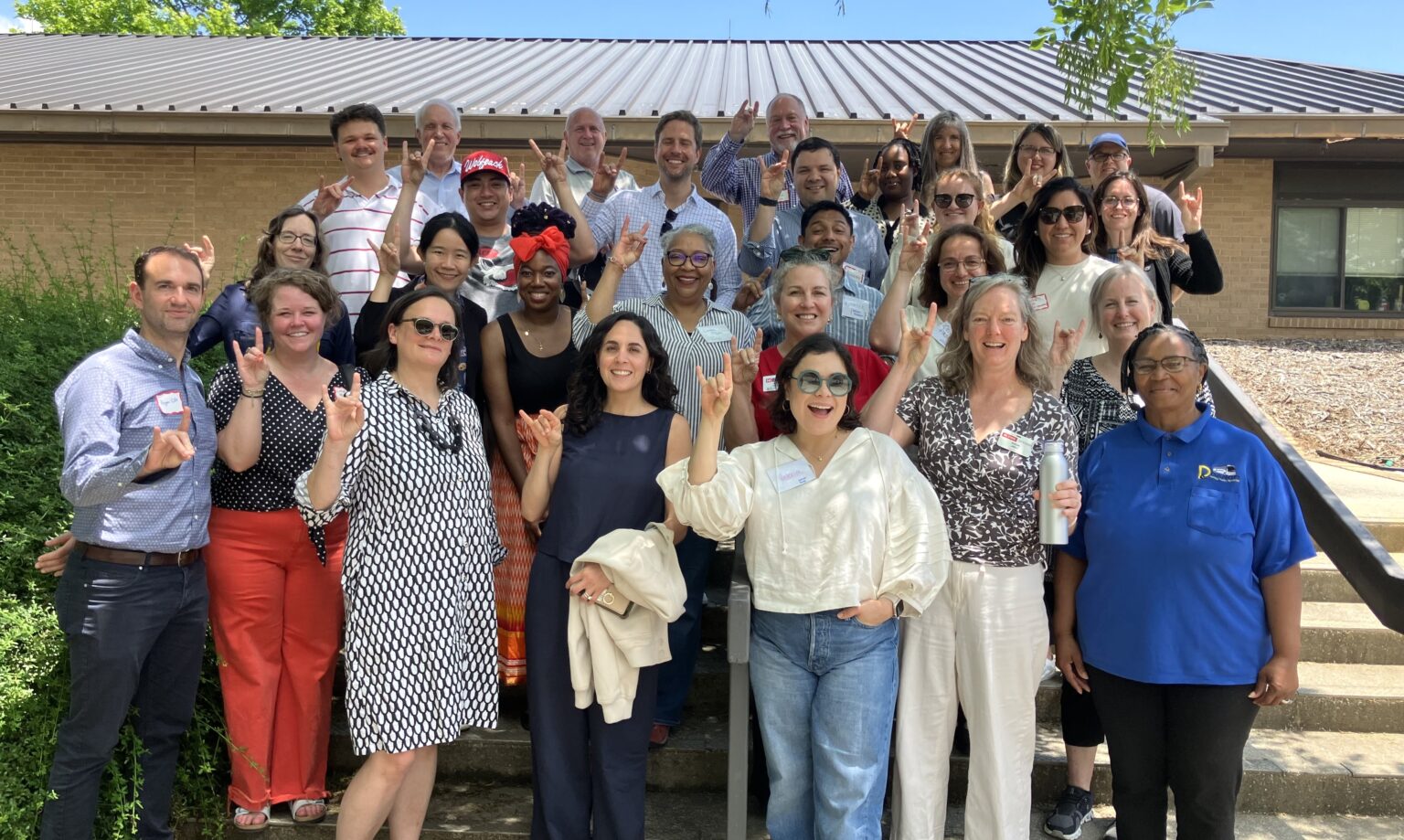Poole College Launches Business Collaboratories, a Transformative Approach to Executive Education
“We developed Business Collaboratories to provide a highly focused, action-oriented executive education program that can help companies work toward transformational change, to enable them to better compete and solve problems with lasting results,” said Paul Mugge, executive director of the program.
“After three years of downsizing and with the rise of Brazil, Russia, India and China (BRIC nations) as major players in the business landscape, companies are feeling the pressure to refocus their business models and re-invest in their key people,” Mugge said. “But resistance to change often runs deep, challenging every aspect of operations, including the organization’s structure, processes, skills and the very culture to innovate and change,” he said.
Cross-disciplinary Business Clinics
Business Collaboratories function as business clinics, each with a cross-disciplinary team of faculty and other subject matter experts who work collaboratively with a company’s business leaders, using proven tools and techniques to diagnose an organization’s toughest business problems.
Together, the team of experts and company leaders work through a wide range of operational challenges that may include technology evaluation and commercialization, new product and service development, supply chain operations, enterprise risk, and organizational behavior.
The end result: solutions for the company’s immediate needs and development of organizational capabilities to prevent the problem from recurring. “Then, the key to organizational change is educating the organization, from the leadership team on down,” said Ira R. Weiss, dean of the Poole College of Management.
The Business Collaboratories teams have expertise in managing innovation, entrepreneurship, product and service commercialization, supply chain operations, organizational culture, enterprise risk management and other functional disciplines, Mugge said.
“This is a key focus of our faculty in the NC State Poole College and our partners in business and industry, as well as our network of researchers affiliated with the college’s Center for Innovation Management Studies and other programs,” he said. “The collaborative environment helps assure that participants gain immediately applicable business solutions that yield results.”
Business Collaboratories was formally announced during the April 12-14, 2011, spring sponsors meeting of the Center for Innovation Management Studies, for which Mugge also serves as executive director.
“We have been testing the Business Collaboratories concept for the past year, providing positive results for participating companies, including BASF, Bayer Crop Science, Biogen Idec, BP, Eisai, EMC, IBM, NCBC, Novozymes, Xerox, and others located in here in Research Triangle Park,” Mugge said.
“The market is telling us companies need more from their academic partners,” says Dan McGurrin, newly appointed director of Poole College’s Business Collaboratories. “Leaders of companies committed to transformative change need access to research and learning methods that challenge their business models, innovate processes, prepare them for change, and, at the critical stage, help implement the change. Poole College’s Business Collaboratories provides these resources in a fully integrated, highly focused, truly collaborative executive development program,” he said.
Impacting the Bottom Line
Business Collaboratories provides an alternative for companies that may have been shying away from traditional executive education programs because they could not identify an immediate return on the investment, Mugge said.
Its ‘action learning’ approach is built around a problem or business challenge presented by the client. By linking training projects to real business priorities, the companies have seen their investment of time and resources being transformed into realized business improvements.
Participants – the company’s key personnel responsible for leading change and improvement – work with the college’s network of industry and academic subject matter experts in an open collaborative environment, applying research-based knowledge, real world experience and proven tools and assessments to develop results-focused improvement projects.
Companies that have sponsored Collaboratories programs for their employees have reported that projects completed through this ‘teaching hospital’ method have more than paid for the cost of the training, Mugge said. “Participants report that they appreciate working on real world problems – provided by their senior managers – rather than someone else’s case studies,” he said.
“The Poole College of Management is uniquely positioned to offer Business Collaboratories,” Mugge added. “It is one of the few business schools in the nation dedicated to the management of technology and innovation, and has long-standing collaborative relationships with NC State’s colleges of agriculture and life sciences, design, engineering, humanities and social sciences, textiles, and veterinary medicine and can capitalize on their technical prowess in building business solutions.”
Most importantly, he said, “Poole College itself is an industry-facing, market savvy institution.” Its network of active corporate partnerships crosses many industry segments, as reflected in part through its centers and initiatives:
- Biosciences Management Initiative (BioSci)
- Center of Innovation Management Studies (CIMS)
- Enterprise Risk Management Initiative (ERM)
- Supply Chain Resources Cooperative (SCRC)
- Technology Entrepreneurship Commercialization Initiative (TEC)
Business Collaboratories works with faculty in each of these, as well as with students in the Master of Business Administration (MBA) and Master of Global Innovation Management Studies (MGIM) programs in the college’s Jenkins Graduate School. “Business Collaboratories taps the collective expertise of this knowledge and experience-rich network to help businesses learn how to diagnose and solve their problems,” Mugge said.
To create a custom Business Collaboratory for and see how NC State’s Poole College of Management is evolving executive education, call 919.515.4445 or visit http://execed.mgt.ncsu.edu.
The NC State Poole College of Management’s Business Collaboratories are contracted and delivered through the NC State Executive Education LLC, a non-profit (501)(c)(3) under the NC State University Foundation, Inc.
- Social Media: Business Collaboratories Blog | YouTube
Related News
Dan McGurrin is Named New Director of Business Collaboratories
Feedback from NC State Poole College’s Business Collaboratories participating companies
- Eisai
The transformation from relying on ‘blockbuster’ drugs, to operating in a world of ‘mini-buster’ drugs meant change was inevitable. To survive in this new world, Eisai Product Supply would need to implement a series of ‘step function changes’ to its global manufacturing and logistics strategy and organization. It would need to build new capabilities, like Alliance Management and Customer Connectivity systems, and – most important – it would need to align its people behind a new business model and create an on-going culture of innovation. A multifaceted action-learning program, called ‘Prepare Leadership’ was developed with CIMS and the Bioscience Management Initiative and delivered to 25 key business leaders over nine months. The key assumption that underpinned the program was that ‘innovation can be managed.’
The resulting portfolio of ‘change imperatives’ is producing new capabilities and systems that change the very way the Eisai Product Supply does business. It is transforming itself into a market- savvy organization that is more customer and patient focused. Read more at http://execed.mgt.ncsu.edu/success_stories/eisai/
- IBM
Companies operating in the Information Age have a common problem: How can they economically sift through the mounds of data – that reside on the worldwide web – to find answers to their most pressing business problems?
- What trends will impact our business model?
- What changes must we make?
- Who can we partner with to exploit this opportunity?
CIMS asked IBM if it could use its natural language processing software to literally ‘read’ the internet – web pages, wikis, blogs, etc. – to find answers to these questions. IBM agreed and gave NC State University permission to use several of its most advanced analytics programs, providing they would be used in research and teaching.
Today, these programs run on NC State’s Virtual Computing Lab, a complex of 2,000 blade servers. This powerful computing environment allows Business Collaboratories partners to experiment with this disruptive technology and to learn new ways of generating business intelligence ‘in the cloud.’ While these partners are fortunate to see the direct benefits from this work, IBM is getting real world application and insight for analytics software offered via the cloud – a major growth strategy for IBM.
- BASF
BASF Agricultural Products and Plant Sciences takes full advantage of Business Collaboratories’ services. It uses MBA student practicums to investigate such subjects as the market opportunities for fungicides; it is engaged in a big data analytics project with CIMS and IBM aimed at finding partners – anywhere in the world – to optimize its research and development portfolio; and it regularly sends employees to the part-time MBA program in Poole College’s Jenkins Graduate School.
This year the BASF Collaboratory will expand to include the rest of BASF North America divisions. Underway is an extensive assessment of these organizations’ proficiency in managing innovation and the establishment of a new innovation culture concept, where BASF employees can see their ideas about BASF’s future get funded and implemented.


